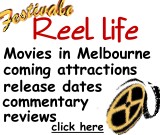Issue: Spring 2014
Writers on Writing: Books for Writers
There was a time when I set my life clock by the arrival of my Writer's Digest and the latest column on writing by author Lawrence Block.
He wrote about writing, and reading, and for someone in one of the world's loneliest professions, he was a comrade.
Writers write. That's the short of it. Nothing will replace the act of writing. Planning, researching stories, researching markets, buying stationery, these are the nuts and bolts of the business of writing, but putting actual words into actual sentences that convey actual ideas and insights -- that is the business of writing.
Reading books on writing will not make you a writer, but it can provide advice, inspiration and a feeling of fellowship. We all have moments of doubt, even despair. The books mentioned in this article offer help and support. But remember, they won't make you a writer. Only you can do that.
Many of the books below are bundled together for October-November 2014 at Storybundle.
To purchase the NaNoWriMo StoryBundle, or get more information, click here.
"If you have any young friends who aspire to become writers, the second greatest favor you can do them is to present them with copies of The Elements of Style. The first greatest, of course, is to shoot them now, while they're happy. - Dorothy Parker
The Liar's Companion (Lawrence Block)
A fun collection of articles written for Writers Digest 1988 - 1989.
Not something for an author seeking instruction on how to get the images and emotions in their brain down and out into a reader's hands. Sadly, no. Nor is it designed to be a complete guide to a career in writing so that you can ditch that day job and stay home with the cats and canaries. And what you read today will not be valid or useful today. But that is not to say that these aren't interesting and useful. Go ahead and read it cover to cover. The writing style is engaging and the subject matter jumps about but there are some gems that will encourage you to keep going, validate your inner voice, encourage you to write for yourself first of all and ignore trends.
There is one article that reports one author who obeyed his publisher's advice to learn to write in another genre. "After all", the publisher said, "Science Fiction is a fad and Sports writing will always be with us." After forcing himself to learn how to write sports fiction the author found it difficult to reach into himself and find his sci fi soul. Looking back we know sports fiction is nothing compared to sci fi. Poor author. - Dee Leana Carter
Kristine Kathryn Rusch - The Pursuit of Perfection and how it harms writers.
Ms. Rusch is a well known author, blogger and workshop coordinator. This book is a short comforting reassuring message to new and established authors. You don't have to write to a formula. You don't have to write to make critics happy. You don't have to change your already published book to make everyone happy.
Write your book your way and move on.
There you go. Done.
She also takes time to criticize the system of critical workshops that authors submit to in the hope of improving their craft and receiving validation. Since workshop attendees seek out and find some less than perfect aspect of a writing sample to tear to shreds workshops have destroyed nascent writing careers.
Message received. Write the book. Put it out to the readers and let them decide if they want to read it. What appeals to someone will not appeal to another.
Don't try to be perfect. No one else is. - Dee Leana Carter
Chuck Wendig - 500 ways to writer harder.
It is possible that, if a group of authors were to get together after pitching their stories to agents and publishers and were consuming mind altering substances of their choice (European chocolate and turkish coffee, please) and were taking turns reading excerpts of this book out loud -- they would find it funny.
If someone ever conducts this experiment please let me know. - Dee Leana Carter
Kevin J. Anderson, Rebecca Moesta - Million Dollar Professionalism for the Writer. Million Dollar Productivity. Million Dollar Outlines.
I have been aware of this series for a long time without wanting to buy them. My issue was the titles. (what works for some does not work for others). I regarded the series with the same suspicion as the proffered second dose of foul tasting cough suppressant I received after my tonsillectomy.
Million dollar? None of the professional writers, with many many years of productivity and NY best sellers to their credit, receive a million dollars.
The introduction explains that the selected professional writers are persons who have produced a million dollars of product i.e. written materials.
For the first book -- Professionalism. You might gain the same advice from any other book on getting a job. Be on time. Be neatly dressed. Be well mannered. Be reliable. Don't s$$% where you eat.
Next book -- Productivity. Don't talk about writing. Write. Don't go to time wasting critic or writing groups if all they do is complain about no writing time. Stay at home and write. Continue to write.
Also, don't let anyone judge you for writing too much or too fast. Those who subscribe to the idea that good is also slow are not helping you.
Pretty much is advice is -- whatever works for you, keep writhing. - Dee Leana Carter
Shadows Beneath. The writing excuses anthology.
This book was set up in an interesting way to "teach by showing." Each author brainstormed a short story (included). Showed the edited document and the finished story so that the reader could learn about the changes that stories passed through.
Interesting. Also traumatic. I have been through that process and as soon as I looked at the pages decorated with cross outs and comments my hands started to shake. I might go back to this anthology in the future but not right now.
Useful for someone who thinks that the editor doesn't like him/her and the red pen is the enemy. - Dee Leana Carter
Adventures in the Screen Trade (William Goldman)
For those who write, or just love, movies, William Goldman's autobiographical stories of movie making are a cautionary tale. Highly readable and entertaining, and more than a little bit scary. - Ali Kayn
Telling Lies for Fun and Profit (Lawrence Block)
When I was reading writers' magazines every month, the first thing I turned to was the column by Lawrence Block. Entertaining, informative and inspiring, these columns introduced me to such luminaries as P G Wodehouse as well as being filled with tips and techniques.
This collection is filled with inspiration and down-to-earth hints. Highly recommended. - Ali Kayn
On Writing (Stephen King)
A favourite book of many horror writers, this book is part autobiography and part prescriptive book on writing. King is an English teacher, so he has a legitimate background for talking about the nuts and bolts of the language, and he is a highly successful writer, so his opinions and hints on writing have some credibility. Personally I don't agree with his writing approach, but he gives seat-of-the-pants writing the nod. Readable. - Ali Kayn




 Published in Melbourne, Victoria, Australia
Published in Melbourne, Victoria, Australia